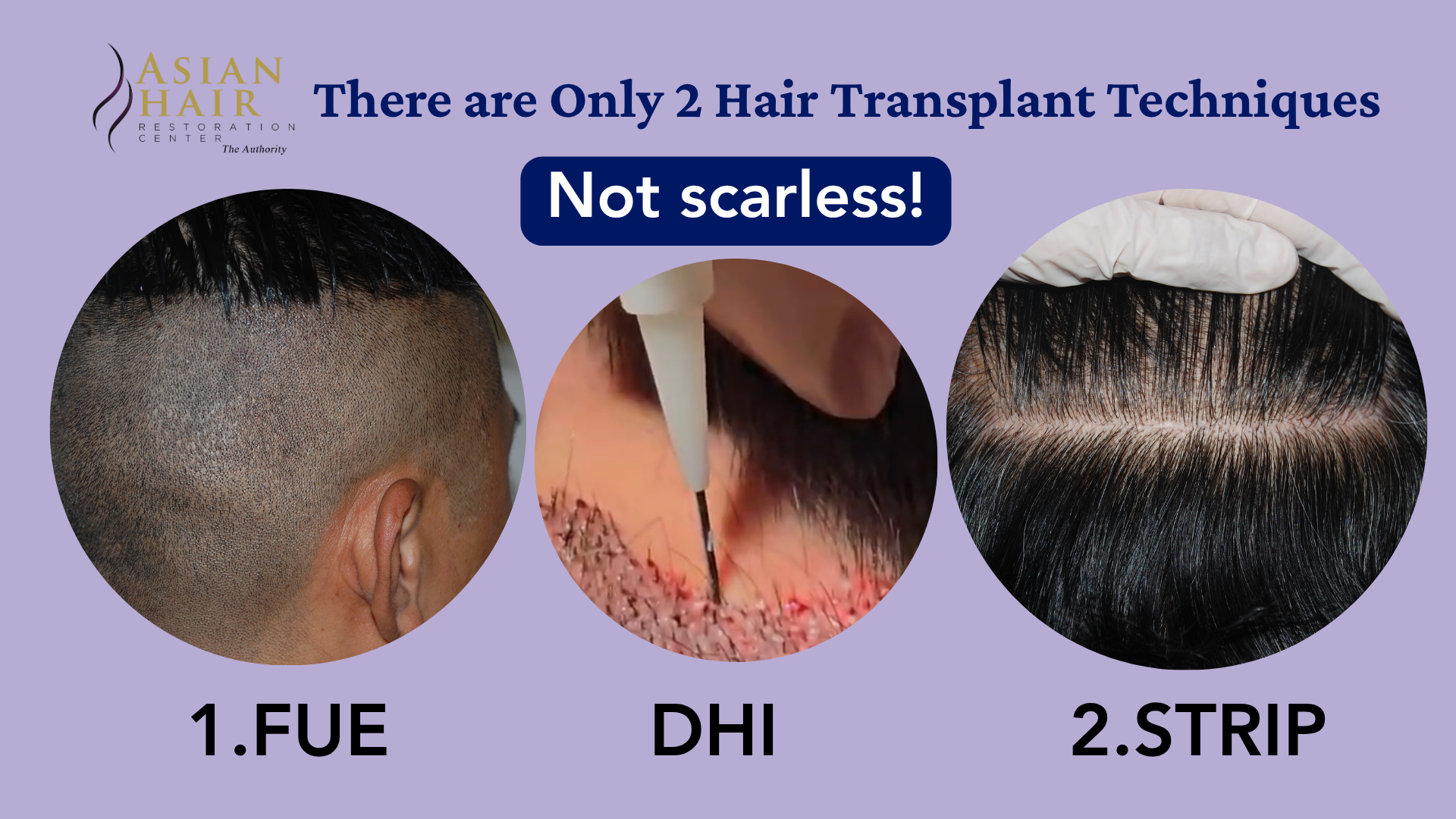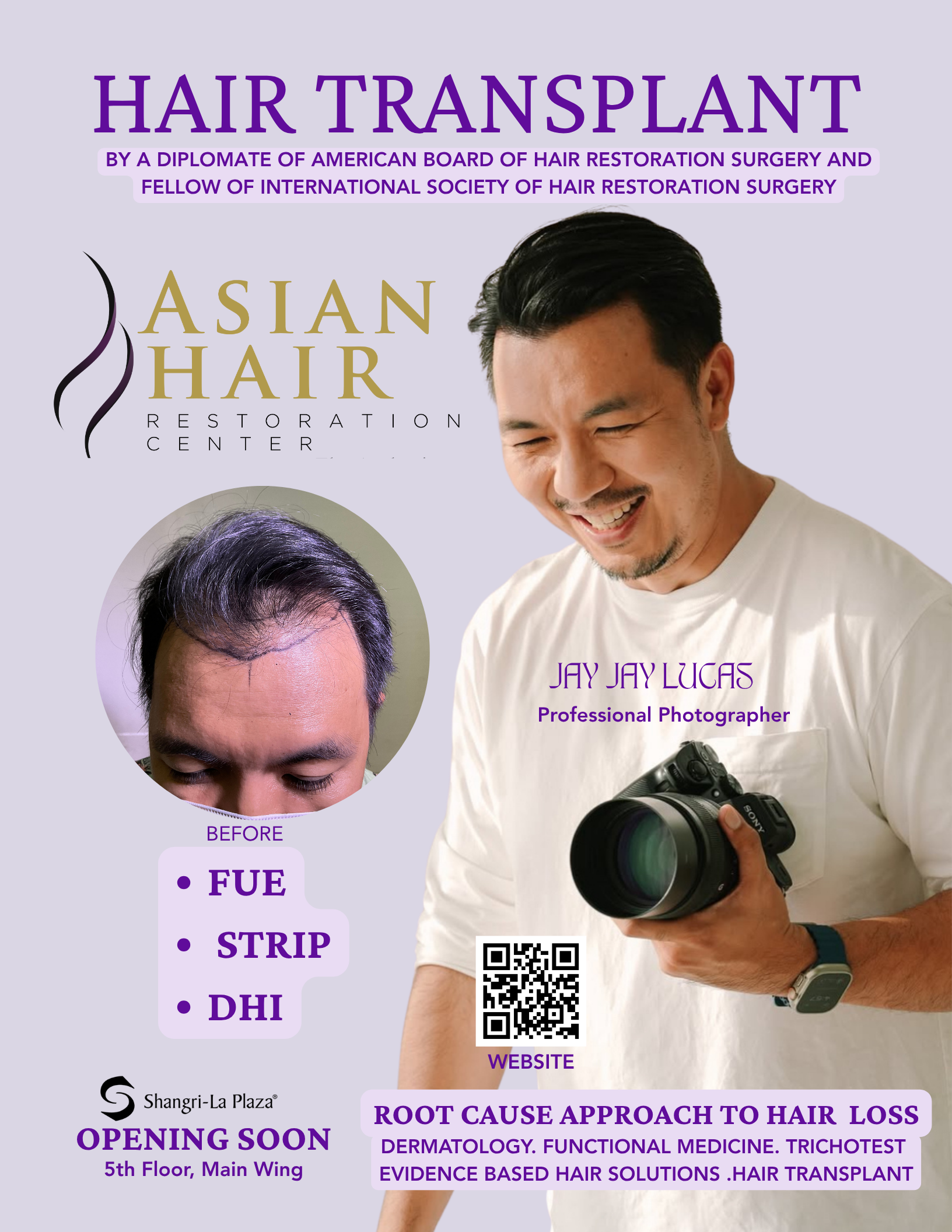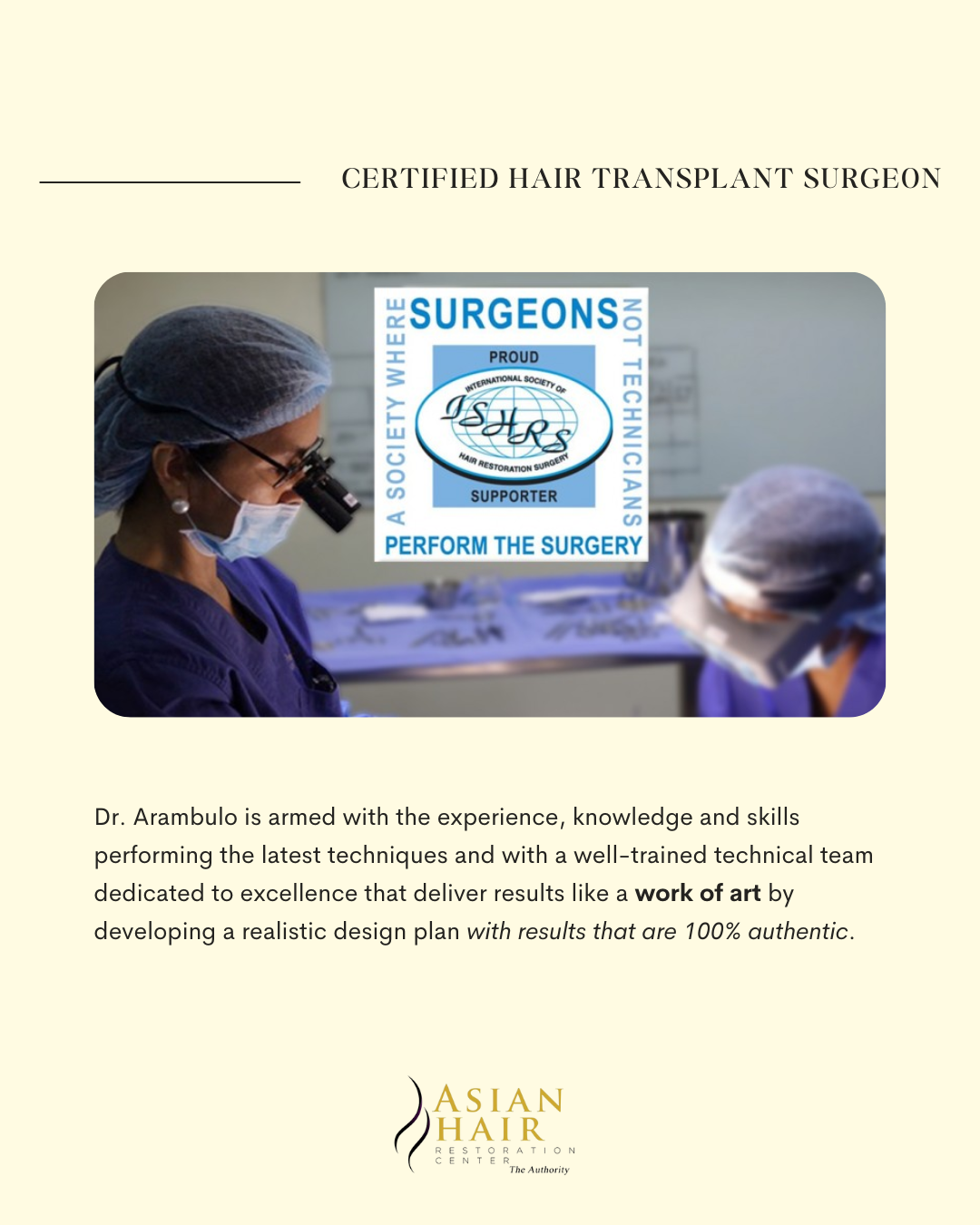Hair Transplant 101: The Only Two Proven Techniques You Need to Know — FUE and FUT
By Dr. Julieta Peralta Arambulo
Every day, we’re bombarded by ads for hair growth shampoos, oils, serums, and high-tech devices promising thicker, fuller hair. While some may improve scalp health or reduce shedding, they often fall short of delivering lasting, visible results—especially in cases of genetic or advanced hair loss.
As a board-certified dermatologist and hair transplant surgeon in the Philippines since 2010, I can confidently say:
➡️ The only permanent, medically proven solution for restoring lost hair in Androgenetic Alopecia is through hair transplantation.
But here’s what most people don’t know:
There are only two internationally recognized and scientifically validated techniques for performing hair transplants:

- FUE (Follicular Unit Excision)
- FUT (Follicular Unit Transplantation) — also called the Strip Method
At Asian Hair Restoration Center (AHRC), I offer both techniques and choose the best approach based on your hair characteristics, goals, and clinical needs.
🔍 Follicular Unit Excision (FUE)
FUE is a minimally invasive technique that involves individually extracting follicular units from the donor area—usually the back or sides of the scalp—and then implanting them into thinning or balding areas.
Best suited for:
Eyebrow, beard, mustache, and sideburn transplants
Patients who prefer short hairstyles and want minimal scarring
Individuals needing smaller sessions or touch-ups
This technique requires artistic precision. I use a microsurgical punch to ensure the correct angle, density, and direction for natural-looking regrowth.
Follicular Unit Transplantation (FUT / Strip Method)
FUT involves harvesting a thin strip of hair-bearing skin from the donor area. This strip is then carefully dissected under a microscope into individual follicular units for implantation.
Best suited for:
Patients with advanced hair loss needing a high number of grafts
Those with limited donor area availability
Individuals willing to accept a fine linear scar in exchange for maximum graft yield
When done with advanced closure techniques and proper post-op care, scarring is minimal and easily concealed by surrounding hair.
What About DHI?
It’s important to clarify that DHI (Direct Hair Implantation) is not a separate hair transplant method—it’s a technique of implantation used within FUE or FUT procedures.
It involves using an implanter pen to directly place grafts into the scalp without the need for recipient site creation. While effective in certain cases, DHI is not a standalone technique and should not be marketed as a separate transplant type.
Beware of misleading marketing that labels DHI as a third transplant method—it’s not.
Which Technique Is Right for You?
There’s no universal answer. Your ideal approach depends on:
Hair type and density
Donor area quality
Scalp laxity
Pattern and extent of hair loss
Lifestyle and styling preferences
Long-term goals
In some cases, a combination of FUE and FUT may be recommended for optimal results. That’s why a personalized consultation is essential.
The AHRC Difference: Hair Transplant Philippines
At Asian Hair Restoration Center, we combine technical expertise with ethical, patient-centered care. Whether you need full hairline reconstruction, crown restoration, or facial hair enhancement, our approach is tailored—not trendy.
Hair restoration is both science and art. With the right hands, method, and mindset, you can achieve natural, permanent results that enhance not only your hair—but your confidence and quality of life.
📍 Schedule a Consultation with a Certified Hair Transplant Expert
If you're ready to explore your options with one of the most trusted names in hair transplant Philippines, book a consultation today.
Let’s focus on what’s truly best for you—not what’s popular or overhyped.
📞 Contact: 0917-580-1684
🌐 Visit: www.hairphil.com





Comments
ronin bishop
April 18, 2020 at 6.25 pm Replay
Lorem ipsum dolor sit amet, consectetur adipiscing elit. Nec et ipsum ullamcorper venenatis fringilla. Pretium, purus eu nec vulputate vel habitant egestas.ornare ipsum
Kathryn Murphy
April 18, 2020 at 6.25 pm Replay
Lorem ipsum dolor sit amet, consectetur adipiscing elit. Nec et ipsum ullamcorper venenatis fringilla. Pretium, purus eu nec vulputate vel habitant egestas.ornare ipsum